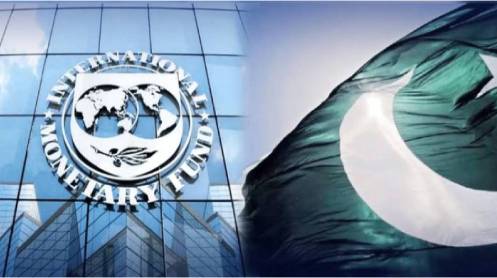The supply of expensive liquefied natural gas (LNG), during the past four seasons, to domestic consumers has resulted in a steep hike in circular debt, trapping gas-utilities and Pakistan State Oil (PSO).
The gas sector is currently facing circular debt of Rs1.5 trillion, with LNG being the major contributing force. Additionally, captive powerplants and fertiliser plants have been receiving gas at discounted rates which has also contributed significantly to the ballooning of circular debt.
PSO, which is a key importer of LNG from Qatar, supplies the commodity to gas-utilities which then distribute and market it to customers.
Previously, the power sector was PSO’s key defaulter. Of late, however, Sui Northern Gas Company Limited (SNGPL) is the key defaulter, with a debt of Rs373 billion on account of LNG supplies.
Following government directives, SNGPL sells Regasified Liquefied Natural Gas (RLNG) to various subsidised sectors including the fertiliser industry, export-oriented consumers and the domestic sector. Due to the subsidised tariff, however, SNGPL’s ability to pay RLNG suppliers, such as PSO and Pakistan LNG Limited (PLL), has been impacted.
Against the subsidies granted, SNGPL’s receivables from the government to date stand at around Rs199 billion. In addition to the Rs373 billion owed to PSO, SNGPL also has to make a payment of Rs135 billion to PLL, another state-run LNG importer.
While the power sector usually pays in full, currently SNGPL’s receivables from the sector have increased to nearly Rs115 billion, another factor resulting in the delayed payments to its suppliers.
At present, PSO is to recover Rs594 billion from its clients. Of the total amount, PSO is to receive Rs176 billion from the power sector on account of oil supply for power generation, Rs146 billion from generation companies, Rs24 billion from Hubco and Rs5.9 billion from Kapco.
Another defaulter that owes Rs23 billion to PSO is Pakistan International Airlines (PIA). The state-run oil company supplies jet fuel to the airline to sustain its operations. PSO is also due to receive Rs8.9 billion from the government on account of price differential claims.
Despite billions of rupees being stuck due to non-payment, PSO has continued making some major payments to oil refineries in Pakistan; an ability likely to be compromised now.
In total, PSO has outstanding dues worth Rs50 billion to be paid to oil refineries. The company owes Rs26.6 billion to the Pak-Arab Refinery Company (Parco), Rs9.7 billion to the Pakistan Refinery Limited (PRL), Rs4.4 billion to the National Refinery Limited (NRL), Rs8.3 billion to the Attock Refinery Limited (ARL) and Rs866 million to Enar.
Being the largest importer of oil, PSO also has to pay Kuwait Petroleum Rs218 billion on account of LC payments for oil and LNG.
The rapid depletion of indigenous gas resources and a lack of major oil and gas recoveries in the country has increased the country’s reliance on LNG. However, due to a global shortage of LNG, given supply concerns brought on by the Russia-Ukraine war, Pakistan has been unable to source spot LNG cargoes. At present, the power sector is the biggest consumer of RLNG, however, the demand for the gas keeps changing throughout the year.
Demand of RLNG from the fertiliser sector is assessed by the Ministry of Industries and Production (MOIP), and is usually given at the 11th hour without any formal planning. This unclear demand from the power sector, along with the lack of planning from the MOIP, also affects the import of RLNG.





